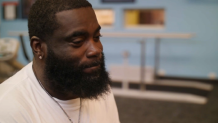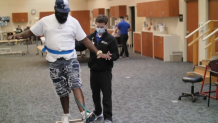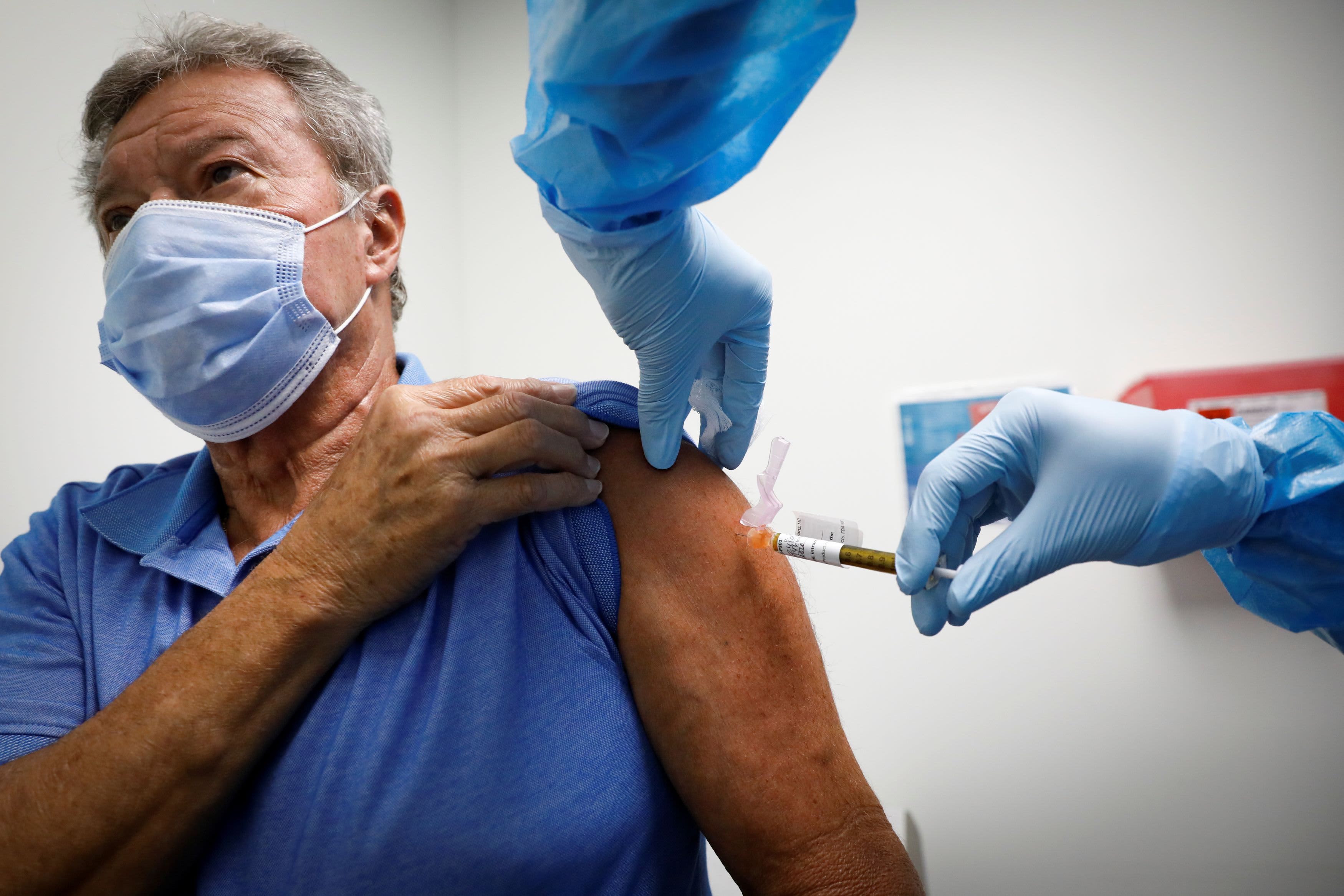For months, Godfrey Edmond has struggled to walk on his own. First, he needed a walker, then a cane and non-stop physical therapy.
“I have nerve damage now in my right hand, in my left foot,” Edmond told NBC 6. “Nerve damage takes a long time so that’s what I’m doing now.”
His journey began in early March when Godfrey was admitted to Memorial Regional Hospital with a low fever, cough and trouble breathing.
After two days and multiple positive COVID-19 tests, his doctor delivered terrifying news.
CORONAVIRUS LATEST
“I was told that I had to be induced in a coma...and I was like, ‘Wait a minute doc, let me call my family first.’ He was like ‘OK, call them, but it has to be done right now,’” he said.
“It was very scary. A test to faith,” Godfrey added.
Godfrey woke up 21 days later away from his family - not knowing what had happened.
“I was an Easter miracle,” he said. “I woke up on Easter so it was very emotional.”
It’s a difficult memory to relive for the 51-year-old father and grandfather. But Godfrey, who is diabetic and has high blood pressure, says it also reminds him how lucky he is to be alive.
“I’m very happy you know, me, my family and the whole ICU staff, were all excited that I pulled through” Godfrey told us while fighting back tears. “A lot of people didn’t make it through, so I’m very thankful.”

Weeks after, Godfrey, who was the first COVID-19 patient at the hospital, was finally ready to go home.
A video provided by Memorial Healthcare System shows him leaving the hospital as a sea of nurses and doctors cheered him on.
But like many COVID-19 survivors, it was just the beginning of a long battle.
Dr. Janice Cohen, from Memorial Healthcare System, says these patients are known as “long haulers.” She describes them as COVID-19 survivors who “are exhibiting persistent symptoms” long after their expected recovery.
Dr. Cohen says they may experience a range of physical, cognitive or even mental health symptoms.
“Some of our patients depending on the severity of their illness can present similarly to intensive care syndrome,” Cohen explained.
She says persistent symptoms can also happen in younger patients and those who were not hospitalized. But the research is far from over.

Eight months after his near-death experience, Godfrey is hopeful about the future but concerned about what he sees on the news, with coronavirus cases spiking once again.
“It’s very scary. When it’s going to stop. When it’s going to end,” Godfrey said.
He doesn’t know how he got the virus but thankfully, his family was not infected.
His doctors say he’s on the right track but they don’t know how long it will take him to make a full recovery.
Godfrey hopes his story serves as a reminder to take the pandemic seriously and to never take life for granted.
“Life is so short. Don't hold grudges, live life to the fullest, and love one another, that’s my message,” he said.



